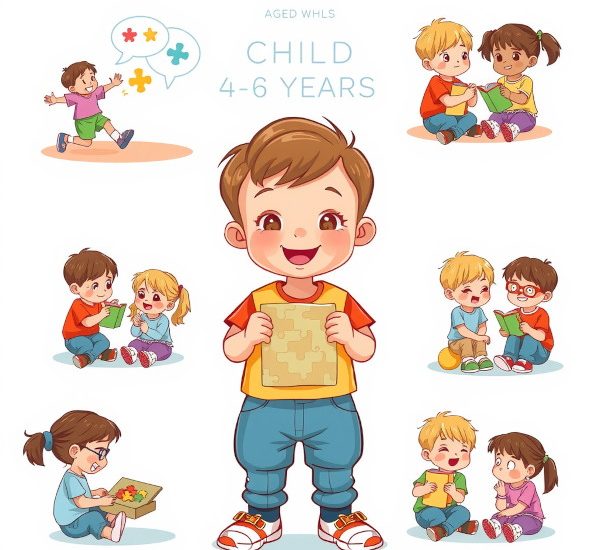Do punishments actually work? What are the long-term consequences? Does a child change their behavior immediately after being punished, suggesting that the punishment had an impact and confirming to the parent that they did something beneficial and that the behavior won’t be repeated? It is important to ask why the child changed their behavior when they were punished. Did they do it willingly, out of pleasure, or out of fear? Is it possible that the fear of future punishment played a role in this behavioral change? What’s the difference between cooperation and obedience?
Regarding the question of what is wrong in this situation, we can analyze more closely the long-term effects of punishments. Although an immediate punishment may temporarily change a child’s behavior, it is important to understand that there are long-term consequences of a punishment-based approach, the child may develop feelings of anxiety or fear, learn to hide negative behavior, or emotionally distance themselves from their parents.
What are the consequences of the punishment?
- Long-term emotional effects: Punishments can have a negative impact on a child’s emotional well-being and development. They can lead to feelings of shame, guilt, anger, or resentment, which can affect self-esteem and the parent-child relationship.
- Superficial learning of behavior: While punishments may result in immediate behavior change, it often remains superficial. Children may learn to avoid punishment, but they may not truly understand the consequences of their actions or develop an internal set of values to guide their behavior.
- Long-term effects of punishments: Even though punishment may have an immediate impact on a child’s behavior, there can be negative long-term consequences. Children may develop feelings of anger, resentment, and frustration towards their parents, which can affect their relationship in the long run. For example, if we pull a child’s ear at the age of 2-3 and observe a change in behavior, the same method will not have the same impact at the age of 4-5, and a more severe approach will be necessary to achieve results. Children become immune to punishments after a certain age and no longer respond to the same methods. We cannot punish them at the age of 12-14 using the same techniques. Many parents feel powerless once adolescence sets in and do not know how to approach situations, falling into the trap of repeatedly using punishments, bribing, or manipulating the child to obtain a certain behavior.
- Development of resistance to punishments: As children grow older, they can become immune to punishments and become more adept at avoiding or coping with the consequences. This can lead to the need for harsher or more severe punishments to achieve the same effect, further damaging the parent-child relationship.
- Deterioration of the parent-child relationship: We should not expect that as the child grows up, they will not repeat the same behavior patterns, whether towards us or in their relationships with others. The situation will not change significantly in terms of how they manage their behavior as they grow. This is an approach they have received and will perpetuate. Additionally, when punishments are applied disproportionately or unfairly, the child can develop resentment and lack of trust towards the parent. This can affect how the child perceives authority and may lead the child to avoid sincere communication with the parent or develop defensive behaviors.
- Lack of responsibility. A punishment will never make a child responsible; on the contrary. Why do some adults become irresponsible? Often, this happens because they have been punished rather than disciplined, and the difference between these two approaches is immense. When a child is punished, they may experience a range of negative emotions such as fear, guilt, or shame. In such cases, the child may shift their focus towards avoiding punishment in the future rather than developing an understanding of the consequences of their actions and taking responsibility for them.
Cooperation versus obedience? What’s the difference?
Furthermore, it is essential to distinguish between cooperation and obedience. Cooperation involves active involvement of the child, understanding the rules, and voluntary collaboration towards a common goal. On the other hand, obedience refers to passive submission, often based on fear or external authority. This can inhibit the child’s initiative and critical thinking, limiting their ability to understand the consequences of their actions and develop their own values and problem-solving skills.
Instead of focusing solely on punishments, a more effective approach can be to develop a relationship based on open communication, understanding, and the establishment of clear rules and boundaries. This encourages the development of atonomy, learning from consequences, and building responsible and empathetic behavior.
The fundamental difference between punishment and discipline lies in the emphasis on learning and growth in discipline, as opposed to the focus on sanctions and compliance in punishments. Discipline provides the child with an opportunity to understand the consequences of their actions and develop appropriate behaviors based on that understanding. On the other hand, discipline is an approach that focuses on learning and understanding the consequences of one’s actions. Discipline helps the child develop an awareness of the impact of their behavior on others and build responsible decision-making skills. Through discipline, the child learns to take responsibility for their behavior and develop self-control and emotional management skills.
The impact of punishments on me during my childhood was primarily a sense of fear and lack of self-confidence. This affected my relationship with my parents and led me to develop defensive behavior and a tendency to avoid situations where I could be punished. In the long term, I noticed that this experience affected my self-esteem, how I handle conflicts, and my interpersonal relationships.
In hindsight, I can see that punishments did not have a beneficial effect on me. They did not make me responsible or teach me to take responsibility for my own actions. Instead, they taught me to avoid sanctions and hide my true intentions.
That’s why I strongly believe in an approach based on positive discipline, which focuses on learning, understanding, and open communication. It is important to build a trusting relationship with our children and provide them with the space and support they need to learn from mistakes and grow responsibly and empathetically. In this way, we can help children develop self-confidence, conflict resolution skills, and healthy long-term relationships.




